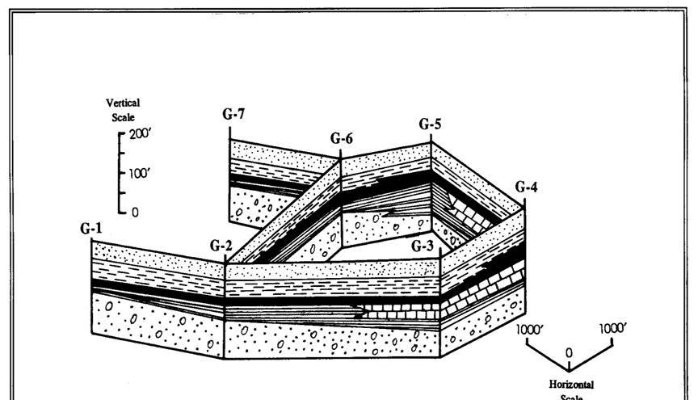Flirt all you want, Ms. BP, but I'm married.You are as horrible as that asshole Doc. My god, you wasted my time in having to put you on ignore all the time.

Flirt all you want, Ms. BP, but I'm married.You are as horrible as that asshole Doc. My god, you wasted my time in having to put you on ignore all the time.

I took sociology and economics in college, and the social sciences are also quantitative, especially statistical methods, probability, numerical summaries.
You're free to walk into any college science seminar you want and holler that you want to do science without any algebra, calculus, statistics, or probability. But you should be prepared to hear roars of laughter as you get escorted from the seminar.
To my knowledge, and feel free to correct me if I'm wrong, no current AI, whether it's a robotic sex doll, ChatGPT or otherwise, could exist without electronics.
Well, whenever you want to explain how AI isn't based on electronics..... I'm all ears! Or eyes, in this case.
I took sociology and economics in college, and the social sciences are also quantitative, especially statistical methods, probability, numerical summaries.
You're free to walk into any college science seminar you want and holler that you want to do science without any algebra, calculus, statistics, or probability. But you should be prepared to hear roars of laughter as you get escorted from the seminar.
Ernst Mayr in his last book titled "What Makes Biology Unique?" argues that many of the theories in biology do not need any mathematical support. He says that much of biology is only conceptual and cannot be describe by mathematical formulations. In the meantime, he also argues that these properties of biology does not prevent this field of knowledge to be considered as a science. (SOURCE)
The mathematics behind it would exist. The linear algebra and the concepts behind how it functions would still exist.
You obviously never went to college, which is why you are reduced to frantically flailing around on the internet for sources.You should enjoy this:
Sure, but the in order for AI to operate, and matter in a discussion about free will, there has to be a method to turn the algebra functional AI. Equations on a page can't think, reason or in anyway exercise free will, even if free will existed.
You obviously never went to college, which is why you are reduced to frantically flailing around on the internet for sources.
You can't have biology without the stoichiometry of chemistry and a quantitative knowledge of chemical reactions.
And you cannot speak from experience about any college science class that forgoes quantitative data
I generally agree but I don't want to be overly limited in the ontology of what is AI.
I'm of the opinion that the techniques AI uses to create it's "mind" (for lack of a better word) are very much the way humans function and as such I think it is irrational to diffferentiate AI from actual intelligence. Especially given that when you meet another person your understanding of how they arrived at an answer to a question is a "black box", just like AI. We never truly know what another "mind" is thinking or how it is thinking it.
I'll let that insult slide. I would like to take this time to sincerely apologize for all the shit I've said to you on here. I'm actually really interested in discussing the topic and I've grown quite bored with this back-and-forth bullshit.
So if your ethics allows for anything like rapprochment let it begin with me.
But that isn't the totality of biology. The quote I provided was from a BIOLOGIST. I should think he would know the metes and bounds of his field. That being said the non-mathematical parts of biology, geology, etc. are still very much part of science. They are still science.
Can we drop this part? I'm tired of insults. Thanks. Again, my sincerest apologies. I put the ball in your court.
So the moral of the story is:
You can't show any scientific laws or accepted theories which are not underpinned by math, quantitative analysis, or statistics.
You can't show any equations or scientific laws that define normative ethical values.
You can't post a single college science textbook which doesn't make consistent use of numerical data, math, statistics, or probability.
That was a real waste of time
I tend to be of the opinion that, given our lack of understanding of consciousness and how our brain functions at a neurological level, it's incredibly difficult, and unrealistic, that AI could ever truly mimic human intelligence, consciousness, etc.
(Emphasis added)Neurological Research and Practice said:"This paper aims to provide an overview of the use and assessment of qualitative research methods in the health sciences. Qualitative research can be defined as the study of the nature of phenomena and is especially appropriate for answering questions of why something is (not) observed, assessing complex multi-component interventions, and focussing on intervention improvement. The most common methods of data collection are document study, (non-) participant observations, semi-structured interviews and focus groups. For data analysis, field-notes and audio-recordings are transcribed into protocols and transcripts, and coded using qualitative data management software. Criteria such as checklists, reflexivity, sampling strategies, piloting, co-coding, member-checking and stakeholder involvement can be used to enhance and assess the quality of the research conducted. Using qualitative in addition to quantitative designs will equip us with better tools to address a greater range of research problems, and to fill in blind spots in current neurological research and practice." (SOURCE)

(Emphasis added)
Here's another discussion of "Qualitative Data Science"
And here's another example from my own person experience. When I first wandered into the professional fields I worked briefly as a well log geologist at a coal company. The job entailed doing something geologists call "correlation studies". The data was written records of what earlier geologists had OBSERVED when looking at cores from wells drilled. The descriptions might be something like "Shale, grey-green, interbedded with sandstone" or "limestone with lenses of clay". The goal of the project was to take these well logs and correlate them across a region to get a better understanding of what kind of rocks existed below the surface.
This usually results in something called a "fence diagram" which looks something like this:

The point being that actual science is being done (understanding the subsurface geology) without any real "mathematics". Of course you can say that depth is a number and that was recorded but if you look at a fence diagram you realize that rock layers dip and rise and fall so depth is of little use compared to the much more "descriptive" text.
Those are just a few examples of non-mathematical science that is still quite SCIENCE.
Well logging requires numeric data.
Not all well logging. Yes, elevation and location...but I hope you see the larger point. Correlation studies are OFTEN done qualitatively.
If you're talking about the mud logger, they aren't even scientists. Mud logging can be done by a trained technician.
Well log correlation isn't done in a vacuum. Numerical data are the underpinnings of lithostatigraphic and chronostratigraphic correlation. You not only need the well specs like depth, datum, and vertical deviation, you have to quantity the correlation if you're going to make isopach, net sand, or net pay maps.
you are confusing well logging with descriptive stratigraphy. And descriptive stratigraphy is, very much, science.
Sounds like you must have some experience in this field?
So then you are familiar with how stratigraphic descriptions are done. And that correlation is often done based on descriptions.
I am curious, though, are you seeing the point I'm getting at? That not all science is quantitative. No one thinks it is. I'm not saying science ISN'T quantitative...but rather than SOME science (the examples I've provided) is done qualitatively and that it is still science.
I know stratigraphers. It isn't just drawing cartoons on a fence diagram. And anyone who is doing that isn't an actual scientist.
